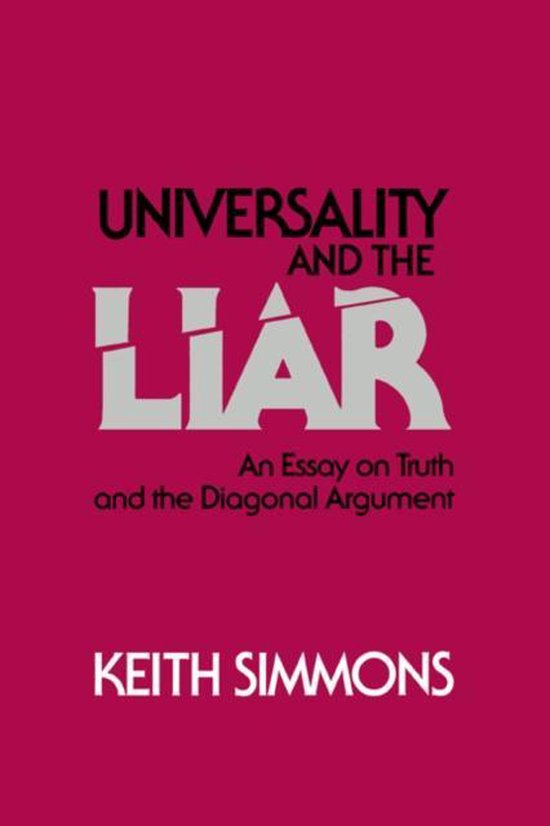
Universality and the Liar
-
AuteurKeith Simmons
- Uitgeverij-
- Jaar-
In 'Universality and the Liar', Keith Simmons delves into the complex and fascinating world of philosophical logic, focusing on the liar paradox and its implications for the concept of universality in language. This seminal work explores how the liar paradox challenges traditional notions of truth and falsity, pushing the boundaries of logical theory. Simmons meticulously examines various solutions proposed by philosophers and logicians, offering a critical analysis of each. The book is a must-read for anyone interested in the intersection of language, logic, and philosophy, providing a comprehensive overview of the debates surrounding universality and the liar paradox. With its rigorous analysis and clear exposition, 'Universality and the Liar' stands as a pivotal contribution to the field, inviting readers to reconsider the foundations of logical thought.